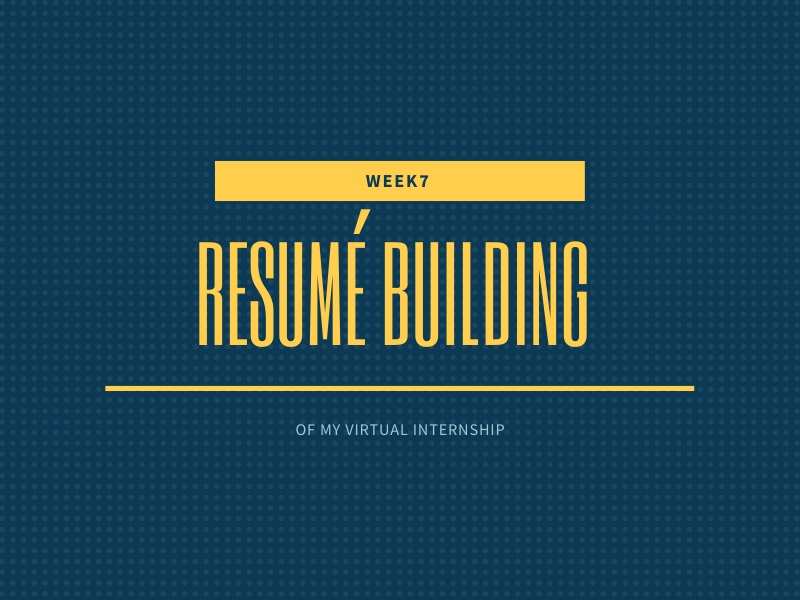While all things related to my virtual internship remain fairly consistent with the past two months, this past week I really focused on preparing for post-graduate life. This process involved revising my resumé, curriculum vitae, and beginning to look for (and) apply to jobs that interest me. I also met with a career educator from my university, who provided feedback on my resumé and gave overall great advice for thinking of my next steps. For those of you reading this who are also students, it will be very helpful to keep these tips in mind as you build out your own resumé or revise your current one.
1. CREATE A MASTER DOCUMENT
Creating a master document that contains absolutely everything (education, work experience, volunteering, skills, publications, etc.) is an efficient way to categorize accomplishments and previous experiences. After that, copies can be made by removing/ emphasizing information according to the type of opportunity being applied to. For example, I should have a copy for when applying to social media/ marketing jobs and another for more technical writing-based jobs. Rather than combing through several copies and editing the most recent, it is best to update the master and add it to copies depending on the relevance.
2. BE SPECIFIC
A very helpful piece of feedback that I received was that my summary section is not specific enough and could be said about almost any person. After my meeting with the career educator, I began revising the section. I also realized that I never actually mentioned that I have received awards for my poetry along with having a couple published poems. Essentially, my summary section did not make it clear that I am a writer, and it did not make me stand out from other applicants. That is all to say that the summary section is a great place to make a resumé stand out from others by having specific accomplishments, skills, etc.
3. MAKE YOUR OWN HEADINGS
It was my first time hearing this advice, but I was told that I can use alternative (more specific) for my section headings. So, rather than use “experience” to list all of my different experiences, I can use labels such as “social media management” and “writing experience” to categorize my previous jobs, internships, and volunteer experiences.
These are just a few great tips to keep in mind when updating a resume. Studying and/or interning abroad are impressive experiences that should definitely be reflected on resumes. Whether it is virtual or in-person, having to work through conflicts that may arise helps develop important skills that employers are looking for.
While my virtual internship has already been a great way to hone my social media management and content creation skills, I look forward to final month of working and continuing to learn from my supervisor.

